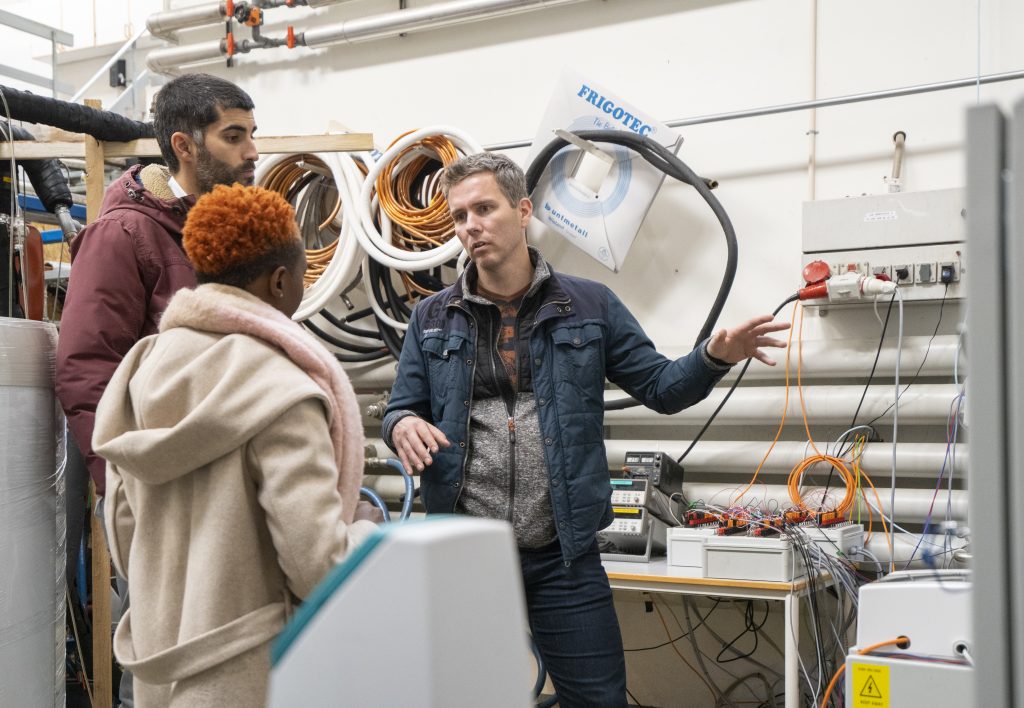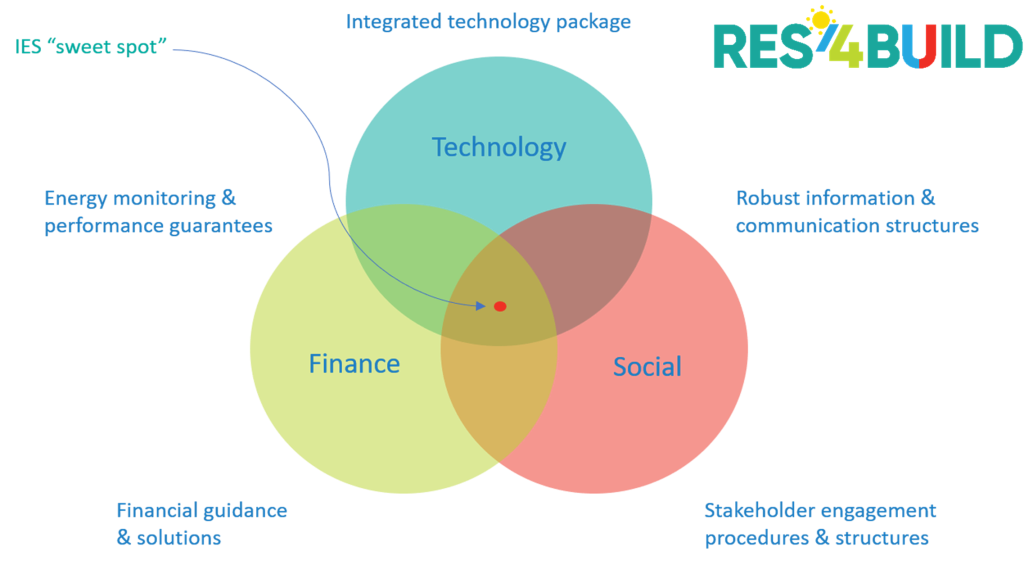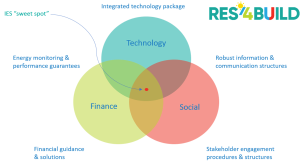A good practice assssment performed by the EU funded RES4BUILD project reveals that accelerating the uptake of Integrated Energy Solutions (IES) increasingly requires consideration of financial and social innovation to address non-technological barriers.
Necessity for Integrated Energy Systems (IES)
The European Commission launched the European Green Deal in 2019 to address the climate challenge, with an integrated policy package covering a range of sectors. For the built environment, the Renovation Wave aims to accelerate improvement of the energy performance of 35 million buildings by 2030.
To achieve this, much emphasis is put on developing integrated and compatible technology packages for building renovations. However, a technology perspective alone is not enough. A good practice assssment performed by the EU funded RES4BUILD project reveals that accelerating the uptake of Integrated Energy Solutions (IES) increasingly requires consideration of financial and social innovation to address non-technological barriers.

Overcoming Barriers to Implement and Scale IES
Both literature and market experience offer insights on technical, financial and social barriers to the upscaling of individual technologies and IES concepts in the built environment as well as ways to overcome these barriers. As such, an IES solution should be more than a turn-key technology package composed of a mixture of energy, installation, insulation and IT controller technologies. RES4BUILD has highlighted good practices in Poland and the Netherlands, exploring key elements of a robust, marketable and scalable IES.

Best Practice IES
Based on the project's assessment, such an IES should:
- Be an integrated turn-key technology package that offers a guaranteed energy performance. This is where a smart ICT system monitors the energy system as well as end user behaviour. Clear and simple lines for communication and engagement with stakeholders/end-users are needed before, during and after renovation.
- Provide innovative finance solutions to be developed and offered jointly with an IES technology concept. This allows for multi-stakeholder, collective or group finance that is sufficiently flexible to meet specific end-user needs and limitations.
- Ensure early involvement of end-users in the IES implementation process to improve acceptance and faster implementation. This could be through establishing collaborations with new social structures such as local citizen initiatives, homeowner associations and energy cooperatives.
More Information
The full report/deliverable "D4.1 Good Practice of Integrated Energy Systems: On Integrated Energy Systems in the Built Environment in Poland and the Netherlands" is available for download from the RES4BUILD project website. For more information on the report, please contact Eise Spijker.
This project has received funding from the European Union’s Horizon 2020 research and innovation programme under Grant Agreement No. 814865 (RES4BUILD). This output reflects only the author’s view. The European Climate, Infrastructure and Environment Executive Agency (CINEA) and the European Commission cannot be held responsible for any use that may be made of the information contained therein.
Article originally published in European Energy Innovation Winter 2020 edition.
RES4BUILD

Project details
- Project title: “Renewables for clean energy buildings in a future power system” (RES4BUILD)
- Funding scheme: Horizon 2020 Research and Innovation Action – H2020-EU.3.3.2.
- Duration: 4 years (1 May 2019 – 30 April 2023)
- Project coordinator: Wirtschaft und Infrastruktur Gmbh & Co Planungs Kg (WIP)
- Project website: www.res4build.eu

